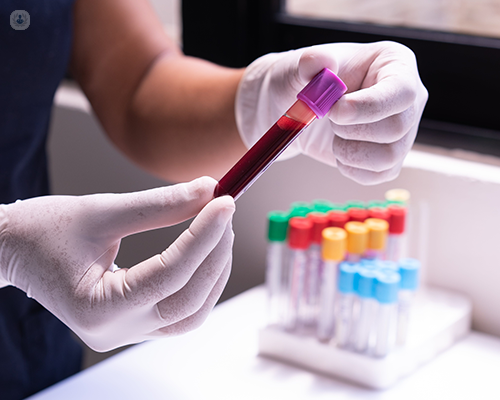Extractable nuclear antigen antibodies (ENA) panel
What is analysed?
Extractable nuclear antigen (ENA) antibodies are a group of autoantibodies that target certain proteins and ribonucleoproteins located in the cell nucleus. There are several types of ENA antibodies, and each is associated with specific autoimmune diseases.
Common ENA antibodies include:
- anti-Sm (Smith) antibody
- anti-SS-A (Ro) and anti-SS-B (Lo) antibody
- anti-RNP antibody
- scl-70 antibody
- anti-Jo-1 antibody
The ENA panel includes a set of 4 to 6 autoantibody tests which detect the presence and levels of ENA antibodies in the body.

What does the result mean?
The result indicates the presence and types of ENA antibodies in the body.
Why conduct the analysis?
The ENA panel is conducted to help diagnose and differentiate between autoimmune disorders.
In some cases, the analysis is conducted to monitor the progression of autoimmune conditions.
When to conduct the analysis?
The ENA panel is conducted after a positive antinuclear antibody test, and when symptoms indicative of an autoimmune disorder are observed such as joint pain, skin rashes, or fatigue.
In some cases, the analysis is also conducted when monitoring autoimmune disorder activity.
What sample is required?
A blood sample is required. The blood is drawn from a vein, usually in the arm.
Is any prior preparation necessary?
Patients should fast 8-12 hours before the sample is taken. In addition, patients should inform a healthcare professional about any medications being taken as they could affect results.
How is it performed?
The sample is sent to a laboratory, where it is processed to isolate the patient’s serum (the component of plasma that remains after blood has clotted). The serum is then where the antibodies are analysed using enzyme-linked immunosorbent assay (ELISA) or immunoblotting techniques.
What are the normal values?
A negative test result indicates that no ENA antibodies were detected.
What does having altered values mean?
- Positive anti-SS-A (Ro) and anti-SS-B (Lo) antibodies: Indicates Sjögren's syndrome, an autoimmune disorder affecting moisture-producing glands.
- Positive anti-Sm (Smith) or anti-RNP antibodies: Indicates systemic lupus erythematosus (SLE) and mixed connective tissue disease.
- Positive anti-Jo-1 antibodies: Indicates myositis, an inflammatory muscle disease.